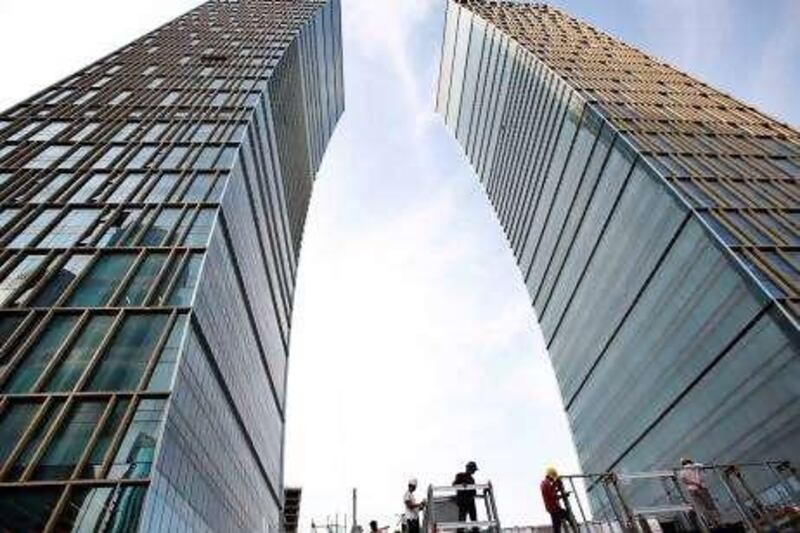TIANJIN // The Chinese economy remains on track for 10 per cent growth this year, despite government plans for tighter policies to cool the property market. Ma Jiantang, the director of the country's bureau of statistics, said he expected inflation to run at 3 per cent and dismissed concerns the property sector was overheating.
Chinese GDP growth slowed to 10.3 per cent in the second quarter from 11.9 per cent in the first, triggering concerns about China's economic slowdown. "The 11.9 per cent increase in China's first-quarter GDP was largely due to lower comparison base last year when the nation was hit hardest by the financial crisis," Mr Ma said on the final day of the World Economic Forum (WEF) in Tianjin, popularly known as the "summer Davos".
He said it was not the speed of China's economic growth that concerned him, but how to enhance efficiency in the way resources were used and how to protect the environment. Sustainability has been a constant theme at the forum. The Chinese government is targetting an average 3 per cent ceiling on consumer price inflation this year, although the consumer price index last month rose to 3.5 per cent, almost a two-year high. This was fuelled by a strong rise in food prices, but Mr Ma said inflation was "relatively stable".
He said more effort was needed for economic restructuring and changing China's economic growth model. A major talking point has been concerns about a property bubble and its effect on political and economic stability in what is now the world's second-largest economy. Market indicators and moves by the government have prompted fears that the boom in residential housing may have run its course, with a price collapse on the horizon.
Beijing is seeking to limit the risk of asset bubbles after flooding the economy with money to drive a recovery from the financial crisis. Housing transactions in cities including Shanghai jumped last month from July, while China Vanke, the country's biggest developer, said sales increased 149 per cent from August last year. Prices fell by 0.1 per cent on a monthly basis in June for the first time since February last year and gains on an annual basis continue to ease. But there are still concerns that a major slide is just around the corner.
In his speech to the WEF this week, the Chinese premier Wen Jiabao said Beijing would act to curb property market speculation and maintain stable house prices, and would speed up development of low-income homes. In mid-April, the government introduced a series of measures including bigger down payments for home purchases and higher mortgage rates to curb rising property prices. Xia Bin, an adviser to the People's Bank of China, said it would take up to three years for the country's property market to completely adjust to tightening measures introduced in the spring to control speculation and lower prices.
Mr Ma echoed those thoughts and said tightening measures on the property market would not have a major impact on China's overall economic growth. He said the property sector was only a small part of the economy, with investment in the sector accounting for 20 per cent of the country's total investment. As for the overall economy, Wei Jia Fu, the chairman of COSCO Holdings, described the possibility of a double-dip recession as "completely impossible" because of China's strong economic performance.
"China's exports and imports will continue to move forward. Next year will actually be better than this year, because next year is the second year after the financial crisis," Mr Wei said. business@thenational.ae





